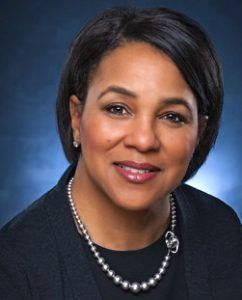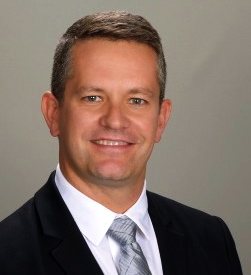Brewer’s exit as CEO of Sam’s Club surprised few; likely to have many career options
by January 23, 2017 12:25 pm 4,840 views

Wal-Mart Stores took a gamble when they promoted Rosalind Brewer to Sam’s Club CEO in January 2012.
Brewer, 54, rose to “rock star” status running the retailer’s stores in Georgia and was quickly promoted to president of the Eastern division stores for about five years. In total Brewer’s tenure at Wal-Mart is about 10 years, the last five running Sam’s Club – a $57 billion retailer last year. It was announced Jan. 6 she was stepping down, with John Furner, the No. 2 person at Sam’s Club, picked as the new club CEO.
Brewer’s appointment as CEO of Sam’s Club was championed by the late Don Soderquist, the former Wal-Mart executive who worked directly with Sam Walton and David Glass. Brewer broke the so-called female barrier at Wal-Mart being the first woman to run a major division and being the first black woman to do so.
While Brewer had a legion of fans inside the company, the financial performance at Sam’s Club was troubling to Wal-Mart Stores CEO Doug McMillon and the board of directors. McMillon knows firsthand what it takes to run Sam’s Club, a job he held from 2005 to 2009, before being promoted to Walmart International CEO.
Analysts who cover Wal-Mart began to talk of changes at Sam’s Club in early 2015 because of stagnant growth against better financial performance from competitors. In October 2015 Brewer outlined a new strategy change with nine top level organizational moves. In November 2015, Talk Business reported that analysts and retail insiders were speculating that the days were numbered for Brewer when John Furner was brought in from China to try an energize the laggard Sam’s Club performance.
Charles Redfield, the No. 2 exec at Sam’s Club during most of Brewer’s tenure there, transitioned back to Walmart U.S. in mid- 2015 and has since been promoted to executive vice president for food for Walmart U.S. He is responsible for all overall strategy, assortment, private brands and sourcing for food categories. Redfield took over for Steve Bratspies, who was recently promoted to chief merchandising officer, a position vacated by Duncan MacNaughton who resigned in November 2014. MacNaughton recently was named president and chief operating officer for Family Dollar, a division of Dollar Tree and competitor to Walmart U.S.

Furner and Redfield are seen as lifers at Wal-Mart with each having spent time running international businesses for the retailer in addition to their work for Sam’s Club managing merchandise, perhaps the most important part of that business. Kantar Retail analysts said managing a club’s inventory is an important part of the profit equation. The gross margin in a club ranges between 10% and 14%, well below the 30% to 40% typical at Walmart U.S.. Aside from the smaller gross margin there are also far fewer items sold in a club versus a supercenter. Sam’s Club usually has about 7,000 items whereas a supercenter carries up to 200,000 items. Kantar said getting the product mix right is essential to a club’s financial success.
While Brewer brought expanded services for business members, grew overall membership and helped to create a better shopper experience with technology used throughout clubs, the warehouse retailer still struggled to improve same-store sales. In 2015 Brewer’s turnaround plan included attention to merchandise assortment and member rewards.
Budd Bugatch of Raymond James had described Sam’s Club performance as “frustrating.”
“We hope that management’s focus on merchandise assortment, marketing, member rewards, and e-commerce investment will drive future traffic and ticket improvement,” he said in October 2015.
Analysts said the dual mission of Sam’s Club to serve small businesses and higher net-worth consumers simultaneously led to somewhat of an identity crisis through the years, which wasn’t helped by different initiatives ushered in through a revolving door of Sam’s Club top management.
Carol Spieckerman, CEO of Spieckerman Retail, has said there have been so many initiatives at Sam’s Club that perhaps members have been confused by all the change and that likely compromised awareness for its programs. While Spieckerman applauds Brewer for raising the bar for the shopping experiences, she said Sam’s Club needed to bring a simple and compelling value proposition and again that points to merchandise.

Brewer, a chemist by trade, spent two decades with Kimberly Clark rising through the ranks of this supplier-manufacturer before she joined Wal-Mart in 2006. In 2015 Brewer was chosen to be part of a new exhibit at the Smithsonian termed “Game-changers” in the larger “American Experience” exhibit. Brewer was selected for her role in breaking barriers in retail for woman and women of color as CEO of Sam’s Club. Her photo is displayed between Jeff Bezos, founder and CEO of Amazon and Janet Yellen, chairwoman for the Federal Reserve who are also part of the “Game-changer” exhibit.
Her work at Wal-Mart was operational leadership, not merchandise or merchant related. Brewer’s replacement has merchant experience and analysts are eager to see what changes Furner will make and they expect to see him focus on growing same-store sales.
The internal memo circulated to employees on Jan. 6 indicated Brewer resigned, but given the terms spelled out in the separation agreement, she might have been asked to do so. Brewer was asked to sign waivers that protected Wal-Mart against future litigation regarding discrimination by age, gender, race or disability in order for her to get the $1.9 million transition money and vesting on her restricted stock.
Alan Ellstrand, associate dean of academic programs and research at the University of Arkansas, said the two-year non-compete clause is customary, but the waivers to avoid litigation are unusual for Wal-Mart. He was not surprised to hear she would not be staying with the company.
Walmart said all of the termination forms signed by Brewer were customary and requirements of all executives departing the company.
Brewer has not talked publicly about her future plans, but Ellstrand said she will likely have plenty of options as she boasts a powerful and diverse resume. Brewer has already begun to sever ties with Wal-Mart, selling 32,350 shares in the open market for an estimated value of $2.21 million, according to a Jan. 9 filing with the Securities and Exchange Commission.
